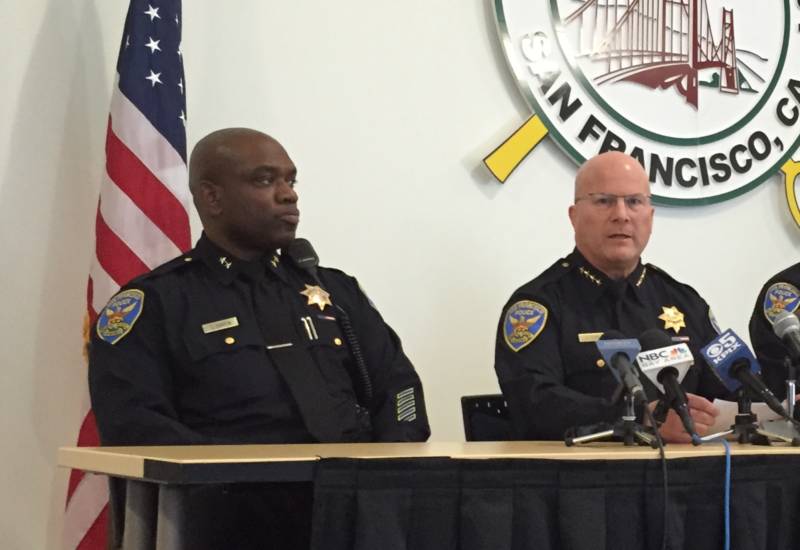“I’m in the unenviable position of being African-American and being a cop, and this is a tough time for most of the members of the San Francisco Police Department,” Chaplin said last year. “There’s a lot of African-American officers that are doing some self-reflecting about people they call friend.”
Chaplin's predecessor, Greg Suhr, started potentially sweeping changes to the department's use-of-force policies following fatal police shooting last Dec. 2 of Mario Woods. Suhr tapped Chaplin to coordinate that effort with U.S. Department of Justice officials called in to review the SFPD.
Mayor Ed Lee asked for and received Suhr's resignation Thursday, just hours after a sergeant shot and killed a woman suspected of driving a stolen car in the city's Bayview District.
Chaplin said Friday top priorities are finally rolling out body cameras for approximately 2,000 officers and finalizing the department's draft use-of-force rules. Body cameras are further along in the process, but their final implementation has stalled in a meet-and-confer process with the San Francisco Police Officers Association.
Friday, Chaplin was asked how he plans to accelerate the changes when the union wants to slow them down.
"Once we get through the process of this thing and get to a finished product, it will start steamrolling and moving faster," Chaplin said. Changes involving both body cameras and use-of-force policies went through a community input process Chaplin called "historic."
"This is huge," he said. "We have people from the community that would never have had input into general orders for the San Francisco Police Department seated around this table giving input, and once all of that was done, it was forwarded to the Department of Justice for further review."
Police Commission President Suzy Loftus said she would redouble efforts to accelerate change in the department.
"The situation we find ourselves in goes beyond one chief and one individual," she said. "My focus today and as we move forward is really on coming together as a city and ensuring that we implement these reforms and get to a better place, because one thing we know is that the police need the community and the community need the police."
Chaplin said he would continue Suhr's practice of holding meetings in the neighborhoods of fatal police shootings, and the Bayview can expect a public gathering next week to discuss Thursday's fatality.
"We’re almost at the finish line with this," he said of the coming policy changes. "And once we get there, hopefully those new changes will prevent tragedies like what happened yesterday."

